Hear about the wildebeest migration rated as one of the world's most spectacular natural events - what it means to smell popcorn on safari - and traveling with a disability.
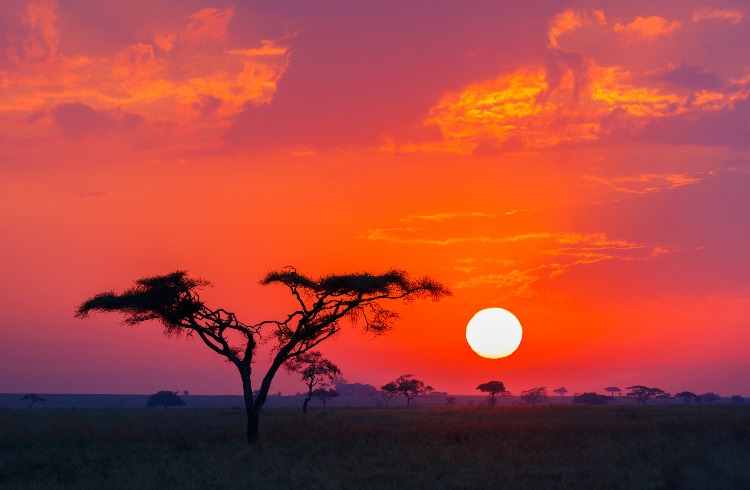 Photo © iStock/Kenneth Canning
Photo © iStock/Kenneth Canning
Listen Now
Episode 14 Tanzania
Tanzania is an East African country known for its vast wilderness areas, including the plains of Serengeti National Park, and is the home of Mount Kilimanjaro
Want to know more about Tanzania? Head over to our Stories section to delve a little deeper.
What's in the Episode
00:13 - Welcome
02:10 - Quiz Question
02:34 – Anne-Marie Soulsby is a travel writer, blogger and coach who has lived in Tanzania - “… I wanted to improve my Kiswahili skills, so I was looking to have an immersive style experience.”
08:30 – Mark Smeltz is a photographer and writer who has witnessed the Wildebeest migration – “… It's just absolutely amazing. The cacophony of noise and the dust and the sounds of the wildebeest grunting and shuffling.
17:15 – Blogger Cory Lee on the difficulties traveling with a disability.
23:13 – Checking in with our World Nomads in Chile
25:17 – Travel News
29:25 - World traveler, photographer and writer Jessica Nabongo shares her Top 10 favourite ‘Shithole Countries’
36:23 – Be a fly on the wall when our writing scholarship winners get the good news
38:43 – Quiz question answer
Who's on the Show?
Anne-Marie Soulsby is a travel writer, blogger, and coach. With more than 18 years of independent globetrotting and seven years as an expat in Tanzania, she's become a travel sage and has experienced many trials and triumphs. Follow her at soulfultravels.co.uk, on Twitter @soulfultravels and Instagram @soulfultravelsuk
Mark Smeltz is a writer and photographer, you can check out his portfolio here. Mark is always looking to contribute articles and photos to blogs and magazines if you want to hit him up. His contact is in his portfolio.
Corey Lee runs a blog, Curb Free with Cory Lee, exploring world travel in a wheelchair.
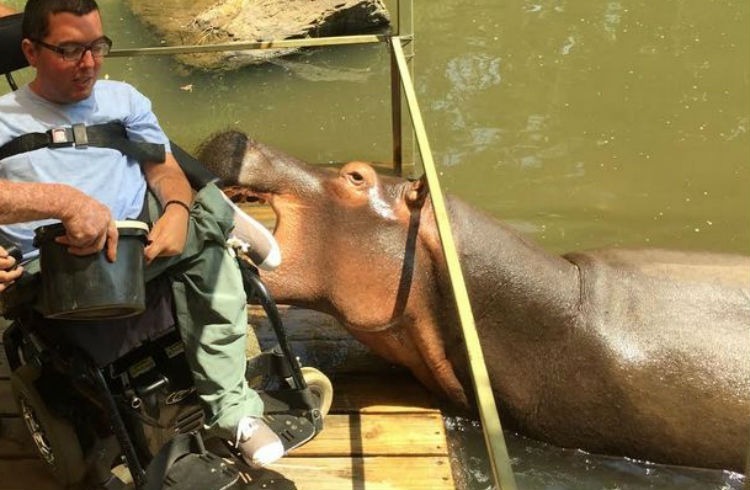
Image: Here’s the pic of Corey and his narrow escape from the jaws of Jessica the hungry Hippo featured on his blog.
World Nomads Sebastion is ‘working’ remotely from South America and recently trekked with fellow World Nomads in Chile.

Image:(from left to right Seb, Drew, Yvonne, and Cory)
Jessica Nabongo is aiming to be the first black woman to travel to every country in the world. Follow her blog Catch Me If You Can and read her article, discussed in the podcast, on her Top 10 Favourite “Shithole Countries”
Congratulations to the winners of the World Nomads Travel Writing Scholarship Claudia Crook, Madeline Russo, and Máté Földi. Read their winning entries. Madeline still can’t quite believe our World Nomads mentor Tim Neville loved her story
Resources & Links
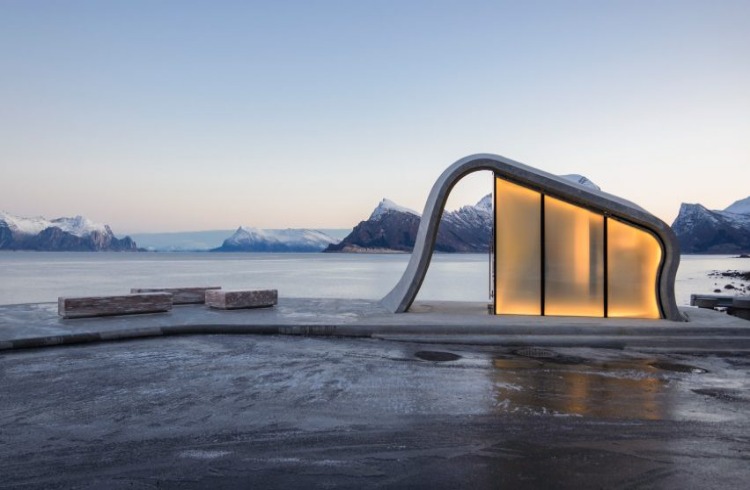
Check out Norway’s $2 million highway toilet stop mentioned in Travel News.
Scholarships Newsletter: Sign up for scholarships news and see what opportunities are live here.
Follow World Nomads on Instagram for the latest stories, and #WorldNomads for your chance to be featured.
Want to Talk to us?
We want to hear from you! If you have any travel insurance questions to Ask Phil, want to give us feedback on the episode, or have suggestions for topics you'd like us to cover, email us at podcast@worldnomads.com
Sign up for Podcast News
Explore your boundaries and discover your next adventure with The World Nomads Podcast. Hosted by Podcast Producer Kim Napier and World Nomads Phil Sylvester, each episode will take you around the world with insights into destinations from travelers and experts. They’ll share the latest in travel news, answer your travel questions and fill you in on what World Nomads is up to, including the latest scholarships and guides. The World Nomads Podcast is not your usual travel Podcast. It’s everything for the adventurous, independent traveler. Don’t miss out. Subscribe today.
Speaker 1: Welcome to the World Nomads podcast delivered by World Nomads, the travel lifestyle, and insurance brand. It's not your usual travel podcast, it's everything for the adventurous, independent traveler.
Kim: [Foreign Language 00:00:13] everyone.
Phil: Are you speaking Swahili woman?
Kim: I actually am. That is hello in Swahili. I've done some research and a bit of a hint as to which destination we're featuring in this podcast, Phil, which is number 14.
Phil: We are off to Tanzania.
Kim: [00:00:30] No, we're off to Tanzania.
Phil: Tanzania. I was going to get to that in a minute.
Kim: Yeah, get to that in a minute. This is not to be confused with Tasmania, which is my home state and there are quite often mix-ups like a Pakistani cricketer who flew to Tanzania, when he was supposed to be in Hobart, Tasmania. To make it clear, Tasmania is Australia's southern island state. Tanzania or Tanzania, however you want to say it is in Africa and Tasmania has kangaroos [00:01:00] and devils and Tanzania has zebra’s lions.
Phil: But you don't say Tasmania, so it's Tasmania. Why isn't it Tanzania?
Kim: It's growing on me since we've been doing this podcast.
Phil: I'm trying to change the world.
Kim: You'll do it one pronunciation at a time. It is Tanzania.
Phil: All right, it's in Africa. Well known for Mount Kilimanjaro, of course, and the plains of the Serengeti National Park.
Kim: In this episode, Mark is going to tell us about the wildebeest [00:01:30] migration which is described as one of the world's most spectacular natural events.
Phil: Wouldn't that amazing to see that live? I've seen the film, but ...
Kim: Oh, he goes back.
Phil: All the time, I know.
Kim: It's like, "It's wildebeest time."
Phil: Wildebeest time, let's go.
Kim: Off we go. Jessica reacts to US president Donald Trump's recent reference shithole countries, which included her home country in Africa so she wrote the top 10 shithole countries and we'll touch on those. Tanzania or Tanzania being one of them and we'll [00:02:00] explore traveling with a disability and feature one of the winners of our traveling writing scholarship. That is all coming up, but of course, by now you know the drill, Phil. We start off the episode with your quiz question.
Phil: Okay. Tasmania, Tasmania, a part of Australia that's close to your heart as you've said Kim, we think of it as being a little island, but it's actually not that little. Guess the question I'm going to ask you? How big is Tasmania? I'm going to give you a multiple choice, all right?
Kim: Yep.
Phil: Is Tasmania about the same size as A, Ireland, B, Costa [00:02:30] Rica, or C, Sri Lanka?
Kim: We'll find out at the end of the episode. Our first guest is Anne-Marie Soulsby. She's a World Nomads contributor and she spent a month doing a homestay in Tanzania, but she also gives us an insight, got to whisper this, into witchcraft.
Phil: Woo-hoo, spooky.
Anne-Marie S: I wanted to improve my key Swahili skills so I was looking to have an immersive style experience [00:03:00] and I contacted a friend of a friend who said, "Oh, yes, my family live just outside of Iringa." Which was where the school was located, so that I would be able to not only have someone to stay with, but also to have a chance to practice my new language skills in the evening and weekends. I jumped on the bus and 10 hours later, there I was being picked up by [00:03:30] somebody and we had very little ability to converse apart from sign language a few words here and there, but I was able to make my way back with him to his family's home where he had his wife and three children.
Kim: I'm interested in learning how to master Japanese cooking, but Swahili? Learning Swahili, it's not anything that's really crossed my mind. How did you [00:04:00] get to this point, Anne-Marie?
Anne-Marie S: Interestingly Tanzania, they have 120 different tribes who all have their own language, however, the president who came into power following independence Julius Nyere, he wanted to unify the tribes and interestingly, his tribal language was Kiswahili, so kind of made it the national language, as well as English.
Kim: What's your proficiency level [00:04:30] if you're asked that question? Which I have clearly just asked you?
Anne-Marie S: It's like when you go anywhere and if you try and if you manage to get a bit of a conversation going with somebody and you know that you can get the gist of what's going on and you can have a fairly simple conversation, especially in Tanzania, they love that. They love the fact that you can have a bit of a chat and a joke and there's always something going on to [00:05:00] discuss. It's one of the national pastimes to sit down on a spare log with a cup of coffee and some peanut brittle and politics or what's going on in the neighborhood, all those things are fervently discussed, especially sports as well. All the football teams are very important.
Kim: We cannot let you go without telling us a little bit about witchcraft.
Anne-Marie S: Well, yes, it's one of those subjects where it's obviously been [00:05:30] around for a long time and it is a form of religion. You can understand that if people have got very little in their lives, that if the rain hasn't come for their crops, that could be a serious situation. They may not have enough food to survive and there are diseases and there's not so many good hospitals and all of those life concerning situations, so people do tend [00:06:00] to turn to what is termed as witchcraft to be able to give themselves some form of reassurance or to be able to help them feel confident that they will overcome these incidents and these events.
Kim: First of all, I'm thinking very cliché voodoo dolls.
Anne-Marie S: It kind of depends on where you are and what's happening. I mean, there could be very subtle little things like I've [00:06:30] heard of before if there's an egg placed under a doorway and it's got feathers on the egg, then that's a symbol to know that there's a thief around. It can be used in an interesting way. It can be used for political reasons. It's used a lot during elections to help MPs become confident in their campaigns and that they will win a lot of votes. [00:07:00] It used for not so good circumstances where sometimes bad things that happened are blamed on the older ladies in the village because they tend to get red eyes from constantly being over open fires and cooking and boiling water and all those things. Their physical appearance makes them look like they have some kind of spirits or evil possession about them. This can then affect [00:07:30] their lives. People have been killed for that reason and the suspicion that they're causing bad things to happen to the area. In terms of comparison, Christians have done bad things. Muslims have done bad things. All these people have also done good things with their religion, so it's how you interpret it, how you use it. And it can [00:08:00] be from simple things like my friend says that there's a big important soccer match coming up for his team, he might go to church, he might go to the mosque, but he might also go to the witch doctor.
Kim: Well, a great insight. I think you can probably take the duvet off and come up for air now.
Anne-Marie S: Thank you.
Kim: Anne-Marie had so much more to share about the different tribes of Tanzania and local customs, but you can get all that in her article in show notes and a link to her blog. [00:08:30] Next, Mark Smeltz, he's another one of our contributors and as we said at the top of the episode, he witnessed the wildebeest migration, loves it. Goes back routinely and as mentioned-
Phil: The wildebeest know him by name now.
Kim: Oh, Mark.
Phil: Mark, Good day.
Kim: As mentioned also at the top of the show, that I meant, that migration is described as one of the world's most spectacular natural events.
Mark Smeltz: I have been fortunate enough to encounter the migration at a couple different times in [00:09:00] both the Masai Mara in Kenya, as of course the Serengeti in Tanzania. Depending on where you are and at what time of year, and of course all the safari lodges track the migration throughout the course of the year, see where it is. You can get live updates from anywhere in the world from where it is and according to, I think, some estimates there can be well over one million wildebeests. I think higher estimates are almost approaching two, but of course, it varies with you're talking to. [00:09:30] At any given point in time, you can drive out and you can just surround yourself in these herds and it's just absolutely amazing. The cacophony of noise and the dust and the sounds of the wildebeests grunting and shuffling and then, of course, you have all the hangers-on. You have in addition to the wildebeest, you have a large number of zebra that accompany the migration and they're interspersed all throughout the herds and they're just as compelling to watch as any of the wildebeest, and of course, a little more visually dynamic, as well. The two of them mixed together, it's just [00:10:00] a fantastic spectacle.
Kim: Absolutely. You were handed to us as an expert on national parks and safaris. Mark, why are you this expert?
Mark Smeltz: Expert is a high accolade, enthusiast for sure. At least every year I try to go to a new destination in Africa, money willing, so so far I've visited the Kruger National Park in South Africa and the adjoining Sabi Sand Reserve, which is a world-famous destination [00:10:30] for leopards, who especially habituated to tourist vehicles. As I said, I've had the privilege of-
Phil: I've been there, seen the leopard. Yep, done that.
Kim: He's done that.
Phil: Yeah.
Mark Smeltz: It's fantastic, right?
Phil: Yeah, unbelievable.
Mark Smeltz: The Masai Mara in Kenya which, of course, is primarily famous for its migration, but also all of the attendant predators like the cheetah and the lion, a little harder to see the leopard there, but certainly not impossible. The Serengeti National Park and Tarangire National Park, also [00:11:00] in Tanzania. One of my favorite destinations is South Luangwa National Park in Zambia which just has the most spectacular variation in the scenery with enormous baobabs and sausage trees and then, of course, the Luangwa River itself, which is seasonally very different depending on when you go. In the dry season, it's very low, very wide open and in the wet season it's just lush and full of I think the highest concentration of hippos of anywhere I've ever seen possibly, out of most of the national parks. [00:11:30] Another thing that I would say is especially interesting, you know a lot of the destinations I've mentioned so far are some of the big ticket, highest, most popular safari destinations in the world. Everybody has heard of them. Some of the ones that are the most exciting to me are the ones that are right next to the cities, because it's just incredible that these countries have allowed pristine wilderness areas to be preserved right alongside, in some cases, capital cities. For example, in Nairobi, Kenya, you have Nairobi National Park which is just sectioned off [00:12:00] right near the city and you can see plenty of legitimately wild animals, including major predators such as lion and cheetah.
When you get the right shot, it's just incredible, because you can see the rolling hills and the landscape and your animals framed up against what is essentially the city skyline of Nairobi and it's unlike anything I've ever seen in the world. There's also Arusha National Park-
Phil: Wait a minute, wait a minute. Now I'm nervous about going to Nairobi. How far away-
Kim: [00:12:30] That was my next question.
Phil: Wait a minute [crosstalk 00:12:33], because if you can see the city, the lions can see it as well, right?
Kim: Exactly.
Mark Smeltz: In fact, you do hear an occasional story every once in a while of an animal wandering outside of the fence line or getting into traffic or something like that. I think they're pretty responsive in containing them.
Phil: That is a point, obviously I mean, from my very limited experience in South Africa, there are fenced reserves and then there are open range areas, as well.
Mark Smeltz: In fact, [00:13:00] that's kind of a point of contention in conservation circles, because the Southern African model, which is largely fenced reserves including Kruger, has been enormously successful and they have been one of the few countries that have been able to maintain populations of animals like white rhino, because of private game owners who have private game farms and it's all in privately controlled hands, and then you have Kruger National Park, which is largely fenced and this model of conservation has allowed these species to recover and increase their population.
[00:13:30] In other countries like in East Africa, like Tanzania, Kenya, you see the more popular parks like Serengeti, Masai Mara, they're completely unfenced, so the animals ... In one sense, it's best for the animal because they're able to maintain their historical migration routes so they can for eons the elephants in Tarangire National Park have passed into the park and then out of the park into the dispersal zones into the Kilimanjaro area and even north of the border into Kenya. These historic routes have been preserved for that [00:14:00] reason.
On the flip side, you, of course, have pastoralists, small-scale farmers, subsistence farmers, even villages that are built in between national parks, so when the animal leaves a national park they often come into conflict with these villages. That introduces problems between man and animal. Usually, animals come off worse in those scenarios in the long run.
Kim: Just on mobile camping, you mentioned being able to [00:14:30] see animals from the city of Nairobi. I don't think that I'd be comfortable camping.
Phil: I'm banging on about my Sabi Sands experience, but it was really one of the most fantastic trips I've ever done in my life. It's an amazing thing to do.
Kim: Do we need to play Toto's Africa again?
Phil: We start off with rubbing hands and all that. The camp that we were in was almost the most expensive place I've ever stayed and I'm going to ask you about that in a second as well, mates. It was an open camp so [00:15:00] you had to be escorted from your room back to the main building, administration area by somebody carrying a rifle. We also had a meal one night, we had a boma, a braai, a barbecue, whatever you want to call it in an outdoor area, which was elevated over the river bank and halfway through the meal the guide goes, "There's a leopard underneath there." And we're going, "How do you know?" He said, "Because I can smell it and it smells like popcorn." Leopard urine smelled like popcorn. I [00:15:30] mean, there is lots of precautions being taken and that's sounds kind of dangerous, but it was also thrilling.
Kim: Oh, totally, totally. [crosstalk 00:15:40] Are you talking about free camping Mark, where you just sort of pitch your tents?
Mark Smeltz:Yes, so in lots of the national parks, depending on where you're going and where you're staying, they will have public campsites so there is some very basic facilities provided like a blockhouse of showers and toilets and maybe like a little [00:16:00] kitchen or dining room, eating area under thatch and then there will just be a little field or campground area where you can pitch your tent, make a campfire at night and these are unfenced campsites. Phil, just like you said in your Sabi Sands experience, a lot of the tented camps and lodges across various parks in Africa are also totally unfenced. Whether you're in a little rondoval or a luxury tent or a little pup tent in the Serengeti on a public campground, [00:16:30] regardless of your accommodation, the animals can be passing through your camp and they don't necessarily care what you're in.
I will say that one difference I've experienced with the small public campsites is that there's certainly no bathroom attached to your accommodation, so you do have to leave in the middle of the night, so there is an added element of precaution and excitement as well.
Kim: We've learned a lot from you. We've also learned that Phil's got bucket loads of money and if you go to Africa and [00:17:00] you smell popcorn run. Mark, thank you so much for the chat.
Mark Smeltz: Yes, thank you very much for having me.
Kim: Phil, we touched on safaris in an earlier podcast exploring South Africa and as part of the research, we found safaris for disabled travelers or those with limited mobility is a rapidly growing market and it sparked our interest, actually. What it might like to travel-
Phil: Travel when you're in a wheelchair.
Kim: Yeah.
Phil: Right.
Kim: As an example.
Phil: Super challenging.
Kim: Yep. We came across a blog Curb Free with Cory Lee [00:17:30] and got in touch to gauge his experience and some of the challenges and we caught Cory just before, believe it or not, now this is a guy in a wheelchair, travels the world, just before he headed off on a camel trek and this is through the Sahara and he explained preparation is the key.
Cory Lee: Whenever I'm traveling I really start planning any trip six to 12 months in advance. Really far in advance and that just gives me more time to kind of figure out is [00:18:00] the destination accessible or what attractions can I do, what restaurants can I eat at and how can I get around the city ultimately and everything like that. It does take a lot of preparation, but in the end, it's always worth it.
Kim: Despite all the preparation that goes into it, you still have some pretty crazy experiences. I'd love for you to share them with us.
Cory Lee: Yeah. I had a lot of crazy experiences and I think that just comes with the traveling as a wheelchair user, but [00:18:30] some that are just on the top of my head, I was on my first night ever in Europe, we actually got to the hotel and I had a converter and an adapter and so went to plug my wheelchair in with the converter and adapter and as soon as we plugged the wheelchair charger into the wall in Germany it blew up and sparks were flying the power in our entire hotel actually went out for about 15 minutes.
Kim: Oh, no. How did they solve that issue?
Cory Lee: [00:19:00] Luckily the never found out that it was me that caused it.
Kim: You got trapped on a burning bus, that's a crazy experience, but that sounds like a super dangerous experience.
Cory Lee: Yeah, I was in Washington, D.C. and we were trying to take the bus from Chinatown over to the zoo and as soon as I got onto the bus, the lift actually caught on fire and it started smoking. I was literally trapped on the bus until the firefighters [00:19:30] got there and the firefighters, they had to carry me and the wheelchair off the bus to safety and so luckily, they saved the day.
Phil: Do you get to meet lots of other travelers whilst you're doing it and what is their reaction? What sort of interaction do you have with them?
Cory Lee: Yeah, whenever I'm traveling I definitely meet other travelers and talk with them and they always kind of ask me ... I mean, they'll ask about the blog or what's my favorite destination or what's the most [00:20:00] accessible destination. They always kind of want to know about accessibility around the world, just because I think that's something that a lot of people maybe don't think about when they're traveling, so they always want to hear that unique perspective from a wheelchair traveler. It's really fun to meet others and kind of teach them about accessibility and hopefully they learn something from it as well.
Phil: What about accessing aircraft and other modes of transport? Do you get cooperation from the companies?
Cory Lee: [00:20:30] We could talk for hours about accessing the aircraft.
Phil: Yeah, yeah.
Cory Lee: Every time I fly, it's a huge debacle and just a big hassle and it's really the whole process of actually transferring onto the plane that's such a hassle, because I have to go from my wheelchair to a little aisle chair, which is just a thin wheelchair that squeezes down the aisle of the plane and so in that process of transferring, because I can't transfer myself, [00:21:00] I have to be manually lifted by the workers and they've nearly dropped me a lot of times. I've been literally thrown into the seat and hurt. It's always just a big hassle and always worry, will my wheelchair actually make it to the destination?
Phil: Oh, yeah, you don't want to be losing that.
Kim: That's not good. That's not good. None of this deters you.
Cory Lee: Whenever I'm traveling I always kind of [00:21:30] just try to think well, no matter what happens, once I get to the destination it'll be worth it. I'll have fun. I always just try to keep that in the back of my mind whenever I'm flying or doing anything like that that's stressful and luckily, it always works out in the end. We'll have a link to your blog Curb Free in our show notes, but there's a photo there of you where you've been wheeled up say hello to a hippo, but it doesn't look like things went well. Before we let you go, you've got to share that story.
Cory Lee:[00:22:00] Yeah, it's probably my craziest travel experience overall. I was in South Africa about a year and a half ago and we went to meet this hippo named Jessica and she has actually been raised by humans and they feed her with a bottle and they feed her sweet potatoes and all kinds of stuff that's like really weird, but it's a cool experience. They gave me a sweet potato [00:22:30] and I went to feed her, but as soon as she saw the sweet potato, she lunged out of the water and grabbed the whole side of my wheelchair in her jaws and started pulling me in the water. She was literally pulling my wheelchair into the water and her human dad came over and he was like, "Stop, Jessica. Stop."
Kim: It was a hungry hippo.
Cory Lee: Right. Yeah, luckily she wasn't [00:23:00] too mad and she stopped finally, but it was a really close encounter.
Kim: We will put that pic in our show notes and by the way, there is plenty of material on accessible travel, which is online and right World Nomad's Sebastian who's living and working in South America. How did he get to do this in South America for six months?
Phil: I don't know. Yes, I've got to speak to the boss here. I think we should take this on the road somewhere. Where are we going to go?
Kim: I think you're wrangling with the boss for a ticket to Melbourne.
Phil: [00:23:30] Yeah.
Kim: Which is an hour flight here in Australia. He's checked in with some of the World Nomads trekking with him at the moment in Chile.
Yvonne: Hey guys, I am Yvonne. We are here at Torres del Paine National Park in Chile. We are in the Valley of Frances and have just climbed up to the Britannica Lookout.
Drew: My name's Drew. I'm from San Francisco. I'm here on a two-week trip, just take two weeks off from work and wanted to check out [00:24:00] Torres del Paine for my entire life, so here I am. Love it so far.
Corey: I'm Corey, I'm also from the San Francisco Bay area. We're here like Yvonne said in Torres del Paine in Patagonia. It's been an awesome time so far. It's very, very cold.
Drew: It's hot then it's cold then it's hot.
Corey: You get really sweaty and you have to take a breather and immediately throw a jacket on. It's been awesome.
Sebastian: Drew, we know you're heading back to the States in a few days. Yvonne [00:24:30] and Corey, why don't you tell us where you're heading to next.
Yvonne: After this, we're going to be heading up to El Chalten in Argentina, still in Patagonia. We'll be traveling that region for maybe a month or so, not sure and then be traveling up through Chile into Bolivia and be going up north through South America from there.
Sebastian: What would guys say is the best thing about travel?
Yvonne: The more you travel, the more you find that people around the world are all just people. We all kind of want the same things. We all just want to [00:25:00] connect with each other. We all want love. We all want to see beautiful things. We all want security and it doesn't matter where in the world you go, we're all just people.
Kim: Thanks Seb. We'll have a great photo of him trekking with guys in show notes. But Phil, before we get to shithole countries, what's travel news?
Phil: World Nomads has announced the winners of the travel writing scholarship and we'll have more details of that in a moment. 7,000 entries they had to go through, travel writing, unbelievable and three lucky winners are going [00:25:30] to be going to Argentina. Before you know it, the travel film scholarship will be launching. Yes, there's hardly time to take a breath. Check the World Nomads create section to learn more. That's coming up in the next week or two, we're not quite finalized the date just yet. In the next episode of this podcast, it will be all about the film scholarship and travel filmmaking and we'll speak to one of the judges and things like that.
Kim: Yep, exactly.
Phil: Right, then on with the rest of the news. The Philippines government has ordered the closure of Boracay Island for six months [00:26:00] starting later this month, in April. Shut it down, that's it.
Kim: Completely shut?
Phil: That's it, you're gone for six months. There's like two million people a year go there, so that's a million people. I've read somewhere that something like 700,000 already paid bookings for hotels on the islands. Sorry, no, it's closed.
Kim: Phil, they've done this in Thailand.
Phil: Well, they shut down Maya beach, the place where they filmed The Beach for environmental reasons there, as well and the same in Boracay, [00:26:30] the Philippine president Rodrigo Duterte said he's taken a recommendation from the environmental authorities and he says it's turned into a cesspool. He's not wrong. There's untreated sewage going into the water there, as well.
Kim: That's just not an issue for tourists, that's the infrastructure.
Phil: That's the whole point, the infrastructure doesn't allow for the influx of two million people a year.
Kim: They've outgrown the infrastructure.
Phil: Outgrown the infrastructure so they've closed it down for six months and in the same week approved the building of a new casino on [00:27:00] the island. I love the Filipino government, they're really on it, aren't they? Could this be the world's most beautiful and expensive public toilet? Norway has spent over $2 million building a convenience along the scenic Helgelandskysten highway. The frosted glass loo in a building shaped like a wave overlooks the Norwegian Sea and is framed by the snow-capped [inaudible 00:27:28] Mountains.
Kim: Is it one toilet or a block? An amenities block?
Phil: [00:27:30] It's an amenities block. The highway we're talking about, the Helgelandskysten highway, do you like that? Is-
Kim: Surprisingly, it's rolling off your tongue this episode.
Phil: Tip [inaudible 00:27:44] phonetically. Look, it's a 250 mile, that's 400 kilometer long scenic route all up the west coast of Norway and you need something like six different ferries to connect to the bits of the road as you go. Just [00:28:00] in Helgaland itself, there's something like 14,000 island because Norway, it's all fjords and what have you. The occasional whiz stop is probably required on that road when you're doing it.
Kim: Please don't tell me you're going to share a pic of it.
Phil: Oh, yeah, let's put the pictures on. It looks fantastic. It's a really beautiful building.
Kim: I'm sure it would be, actually.
Phil: Snow-capped mountains in the background, sitting there contemplating. Richard Branson has purchased the Hard Rock Hotel and Casino in Las Vegas. It'll be rebranded as a Virgin Hotel after extensive [00:28:30] renovations and why am I telling you this you may be asking. Well, the blond head billionaire says he can't guarantee that the guitar-shaped swimming pool will be retained. Last episode I told you about the Qantas 17-hour long haul flight from London to Perth, Australia. Apparently, Qantas and some other airlines around the world, are planning more long, long-haul flights.
Is it the end of the stopover? Is one question. What they're doing to help make these globe-spanning trips [00:29:00] without refueling more comfortable is ... Well, first of all, they need to lower the weight on the aircraft so they've got to ditch most of the cargo that goes on board. They're thinking what do we do with the empty cargo space underneath the floor? They're talking about putting in like train style sleeping compartments. You don't have to cough up for a business class seat to lie flat, you can pay a couple hundred bucks more to reserve one of the sleeping bunks. That's it. That's travel news.
Kim: Well, you may or may not have heard when the president [00:29:30] of the United States, Donald Trump mentioned some countries being shitholes. In fact, he said, "Why do we want all these people from Africa here?" He went on to refer to Haiti and El Salvador and not just, he didn't actually mention the names of the countries, he actually called them shitholes. Jessica Nabongo is a nomad, a photographer, a writer, and a dreamer and you immediately reacted to that, Jessica.
Jessica: Yes, yes I did because my parents are from a shithole [00:30:00] country.
Kim: Which country would that be?
Jessica: Uganda.
Phil: Uganda, what a really interesting shithole, though.
Jessica: Yes, it's lovely.
Kim: You sat down and you wrote my 10 favorite shithole countries in a blog, but before you got into that, you did do a little bit of research, didn't you?
Jessica: Yeah, I mean, my life, I guess is my real research. I've traveled to probably around 25 shithole countries including El Salvador and Haiti.
Phil: [00:30:30] What do you know about Uganda and what should we know about Uganda?
Jessica: I know a lot about Uganda. Uganda is an absolutely amazing country. It's nicknamed the Pearl of Africa. It has safaris. It has a few of the world's last remaining mountain gorillas in the west. It sits on the Equator. The source of the Nile River is there and Jinja Bujagali Falls and yeah, Uganda has tons of wildlife, [00:31:00] amazing cultures, there are so many tribes. There's so much to learn about the country. I mean, it's endless.
Kim: But it's not a shithole by the sounds of it.
Jessica: No, no, not at all, not at all. I love going home because the weather is always perfect, because it's on the Equator it's temperate, so it's never too hot, never too cold.
Phil: That was interesting, you say you're born in America, but you just referred to Uganda as home. Is that how you feel about it?
Jessica: Yeah, absolutely. [00:31:30] Of course, I was born in the US, but the majority of my family is there. I only have around 15 blood relatives in the US, but to put that in perspective, I have about 105 first cousins and three are in the US, two are in the UK, and the rest are in Uganda, so the vast majority of my family is still there.
Phil: When you heard President Trump refer to your country and other countries as shitholes, how did that make [00:32:00] you feel as an American?
Jessica: For me, it didn't really make me feel a kind of way, it's just like, oh, it's just one more stupid thing. I know the beauty of Uganda. I know the beauty of Africa as a whole. I love Haiti. I've been a number of times. I recently visited El Salvador in October. For me, his words are meaningless.
Kim: Speaking of Haiti, it was the first black republic and you've mentioned that you've been there several times. You also say in the [00:32:30] article that we'll share show notes that you volunteer in Haiti, but when you travel to Paris, you wouldn't think of volunteering. What's the difference?
Jessica: I actually don't volunteer in Haiti. My article speaks to the fact that I would not volunteer in Haiti in the same way that I would not volunteer in Paris.
Kim: Why not?
Phil: Why not?
Jessica: I think that there's this idea for a lot of people from the Western world that we want to go to mostly brown and black countries [00:33:00] and we want to volunteer. We want to go to orphanages, but people don't think to do that when they go to Paris or when they go to London or when they go to New York City. There is certainly orphanages in these places as well, so for me, in the same I wouldn't do that in Paris, I wouldn't do it in Haiti. I also don't encourage other people to do that. I run my own company called Jet Black and we focus on travel and tourism in Africa, Central and South America and the Caribbean [00:33:30] and a lot of people ask me, "Oh, well can we do volunteering on your trip?" And I say, "No, because we're just going for tourism."
I think what I want to push as an idea is that you should travel to countries in the Caribbean and countries in Central and South America and Africa just for tourism in the same way that you would go to Europe. If we really focus on getting more people to go and spend their tourism dollars in these countries, then we can start to see more money flowing into the countries. To me, it's about, I always tell my guests, [00:34:00] tip your drivers very well. Make sure you're going to shop in local markets. Where I can, I try to stay at properties that are owned by local entrepreneurs. I make sure that all of my tour guides are working for companies that are owned by local entrepreneurs. To me, that's really how we can give back, by sort of helping to inject funds into the private sector.
Kim: You've traveled to 22 of Africa's 54 countries, what's your favorite shithole?
Jessica Nabongo: Oh my gosh, that's so hard. [00:34:30] I really love Kenya and Tanzania. I recently fell in love with Namibia and Zambia, but Namibia, I mean the landscapes are just out of this world. Sossusvlei, the desert with all of these red sand dunes. The sand is so beautiful and fine. There's literally no pollution when you're out there, so it was the first time that I was able to see the Milky Way in the evening. [00:35:00] The landscapes are incredible. Zambia I loved it because I got to do Devil's Pool at Victoria Falls, so-
Phil: Oh yes.
Jessica: It was-
Phil: Not covered by insurance, I'm sorry.
Kim: Yeah, it's not covered by insurance. We've talked about this on previous podcasts. Tell me, you know how you sort of jump in and then all of a sudden you stop. It doesn't look like-
Phil: Kim doesn't understand how you don't go over the edge.
Kim: How do you not just plunge?
Jessica: It's literally a [00:35:30] pool. It's a natural pool and there's a little wall of sorts that blocks you. You can lean over the wall. I leaned over the wall, but you know what? It wasn't even scary. What I didn't like about the experience is there's little fish in the pool that are biting you and that's actually, to me, the worst part. It isn't feeling like you're going to fall over, it's those little fish biting you.
Phil: [00:36:00] You're not bothered about plummeting 300 meters to your death, but you're worried about fish. You need to get a proper perspective on life, Jessica.
Kim: Even the fact, Jessica said there's a small wall of sorts.
Phil: It's a little wall, she said. Now I want a great big fat wall.
Kim: It's been absolutely great chatting to you. We will share your article which includes some beautiful photos, including those landscapes you were talking about in Namibia.
Jessica: Thank you.
Kim: You are very welcome. We've just announced the winners of the travel writing scholarship to Argentina and we were there when two of the lucky winners [00:36:30] were told.
Claudia: Hello.
Speaker 13: Hey, Claudia, how are you?
Claudia: You're about to tell me how I'm doing, I feel like.
Speaker 13: I've got my colleague Beck here on the line as well.
Beck: Hi.
Speaker 13: Beck actually had one final question to ask you before we make our announcements.
Beck: We just wanted to know whether you wanted to go to Argentina/
Claudia: Girl, you know I do. I saw that [inaudible 00:36:56] and my heart just started going. I was like, "No, this is it. [00:37:00] What is going on." I'm so excited. You don't even know.
Beck: Would you like to go to Argentina as winner of the scholarship?
Claudia: Oh my God. Sorry, I don't know why I'm crying.
Beck: That's okay, we'll give you ... We'll give you the time.
Claudia: Oh my gosh, really?
Beck: Yeah, really.
Speaker 13: We loved your story. It was one of our favorites. Tim Neville has really enjoyed it. He can't wait to see you in Argentina.
Claudia: Wow, thank [00:37:30] you so much. I cannot tell you how much that means. Wow.
Kim: That was Claudia and Madeline receiving the news. Marte was our third winner and the winning entries will be in show notes. With such a teary reaction, we had to check in with Madeline to see if the news had actually sunk in.
Madeline: It's just starting to sink in right now, but it still doesn't feel real. We're just starting to plan our trip to Argentina and stuff. I don't think it's ever really going to sink in until I arrive there, honestly. [00:38:00] I didn't think writing could ever be a real thing for me. I was kind of set on the psychology track back in college and then last semester I kind of realized that's not what I wanted to do and so I declared English as a major too and then I just kind of spur of the moment, came to Dublin this semester to do a writing program. I never really thought that a writing career might be possible for me. When they told me that I won, it suddenly became a possibility and [00:38:30] just having the opportunity to be mentored by someone like Tim Neville. That's definitely a money can't buy opportunity.
Kim: Congratulations all and as you said, the next podcast episode is all about the film scholarship.
Phil: Yep, all the details. Everything you need to know.
Kim: Before we wrap the answer to your quiz question.
Phil: Is Tasmania about the same size as A, Ireland, B, Costa Rica, C, Sri Lanka. Kim?
Kim: I'm going to say Costa Rica.
Phil: All right, the answer's all three.
Kim: All right, okay.
Phil: All of the above. [00:39:00] No, seriously. It's closest to Ireland. Tasmania is 68,000 square kilometers and Ireland is 70,000 square kilometers. Tasmania is a little bit bigger than Costa Rica, it's about 1.3 times bigger than Costa Rica and Sri Lanka is about 1.2 times bigger than Tasmania, so they're all around about the same size. I was really surprised. I've always thought of Tasmania as quite small.
Kim: I [00:39:30] think what gives it away as being possibly a small island is the fact it's only half a million people.
Phil: That's right. It's empty.
Kim: Yeah. It is, like pretty much of Australia really.
Phil: Pretty much.
Kim: That wraps up our episode on Tanzania, Tanzania, please subscribe.
Phil: Tanzania.
Kim: Right. Share on iTunes, however you like to say it. Google Play, Stitcher, find us on Spotify and iHeart radio and contact us too by emailing podcast@worldnomads.com
Speaker 1: The World Nomads podcast, explore your boundaries.
Related articles
Simple and flexible travel insurance
You can buy at home or while traveling, and claim online from anywhere in the world. With 150+ adventure activities covered and 24/7 emergency assistance.
Get a quote



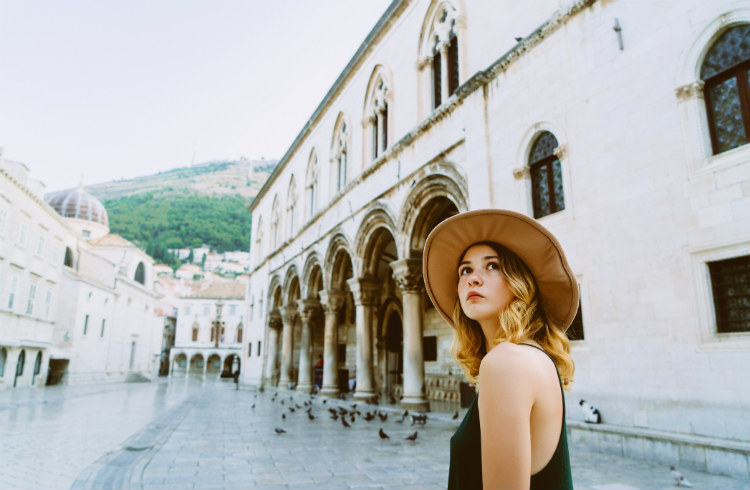
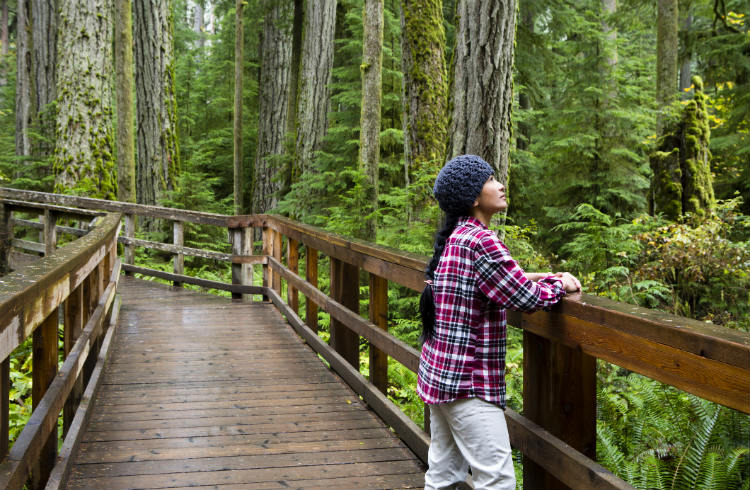
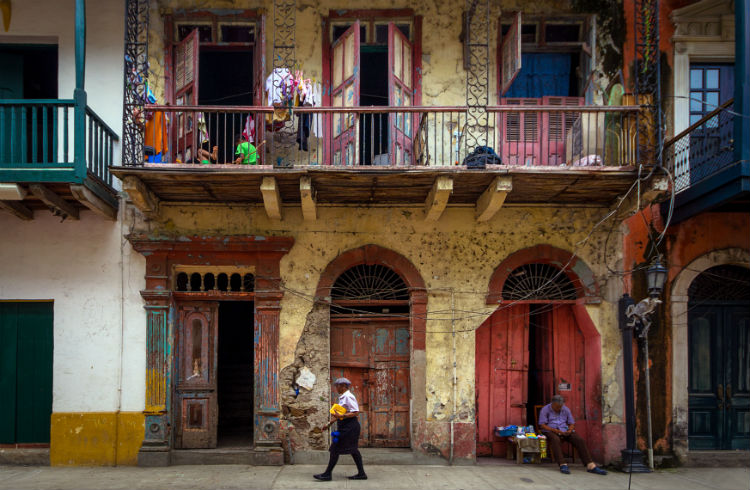
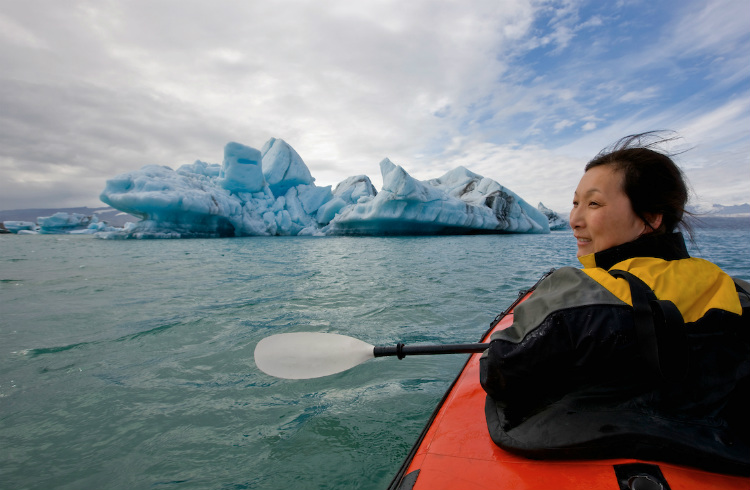
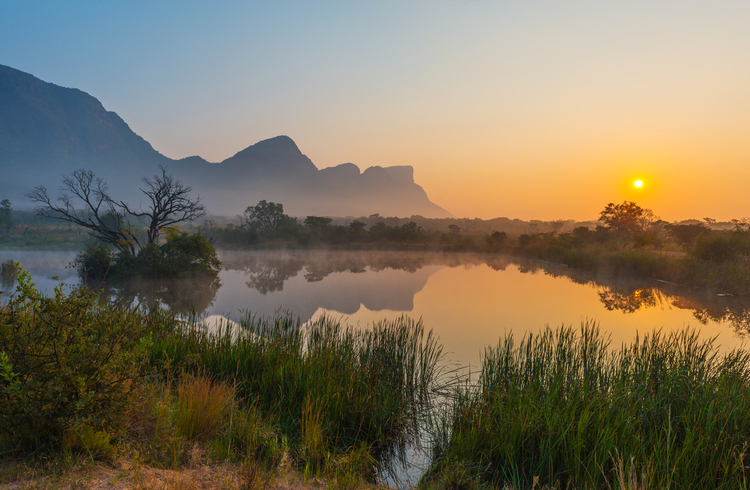
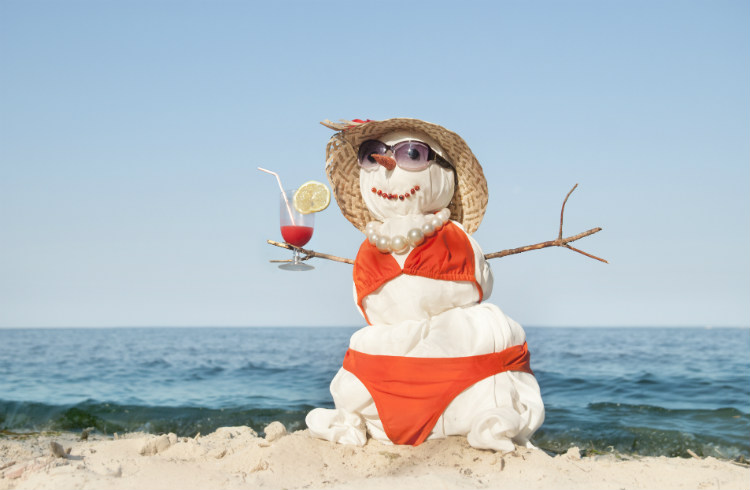
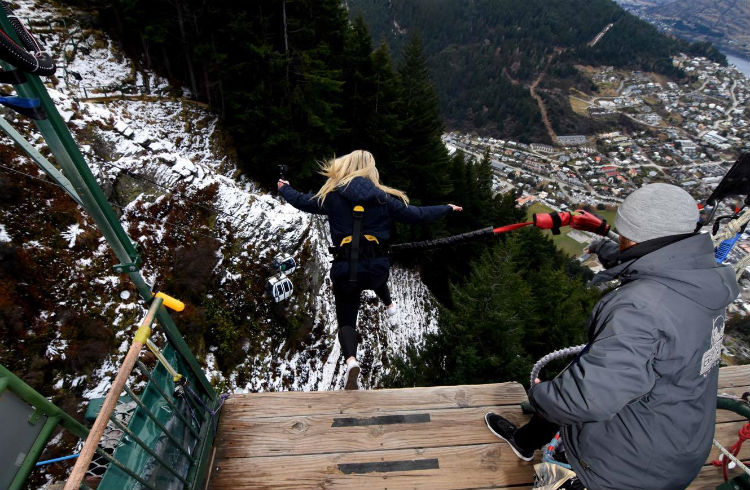
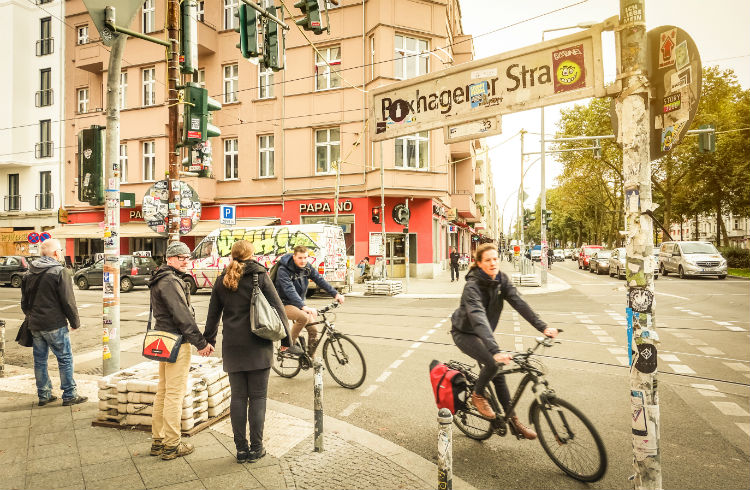
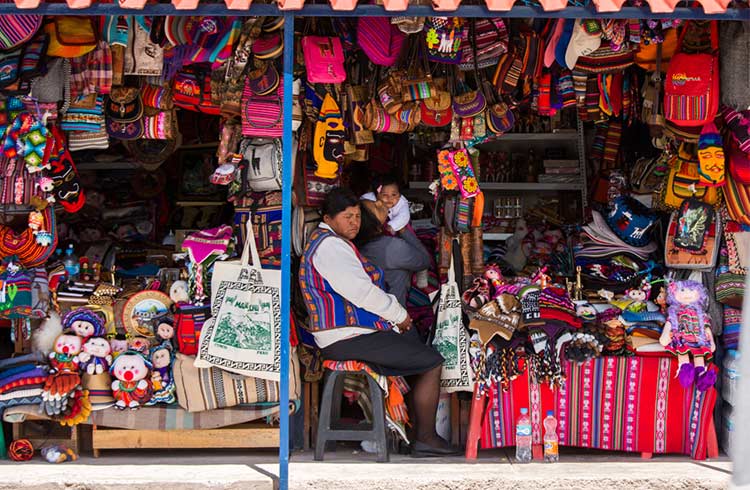
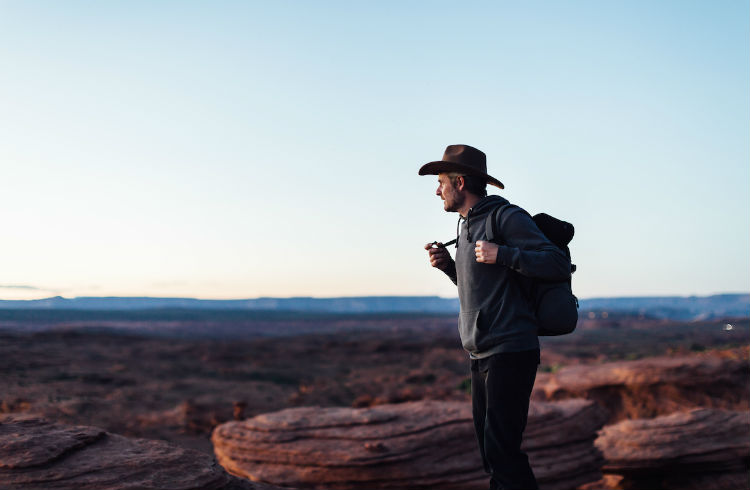
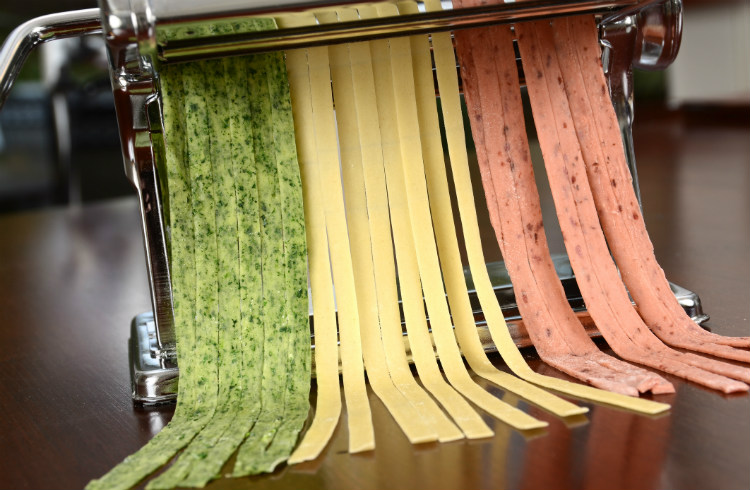
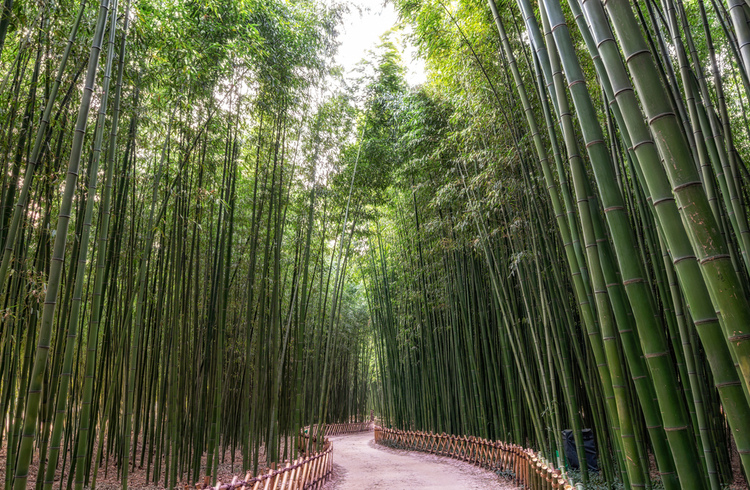
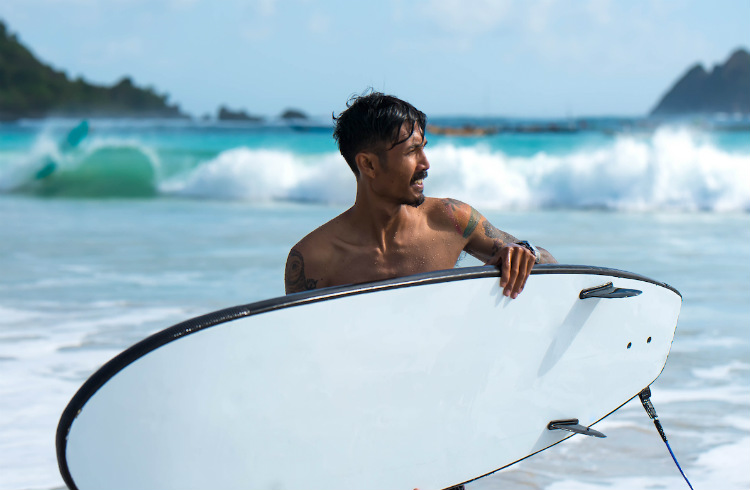
No Comments